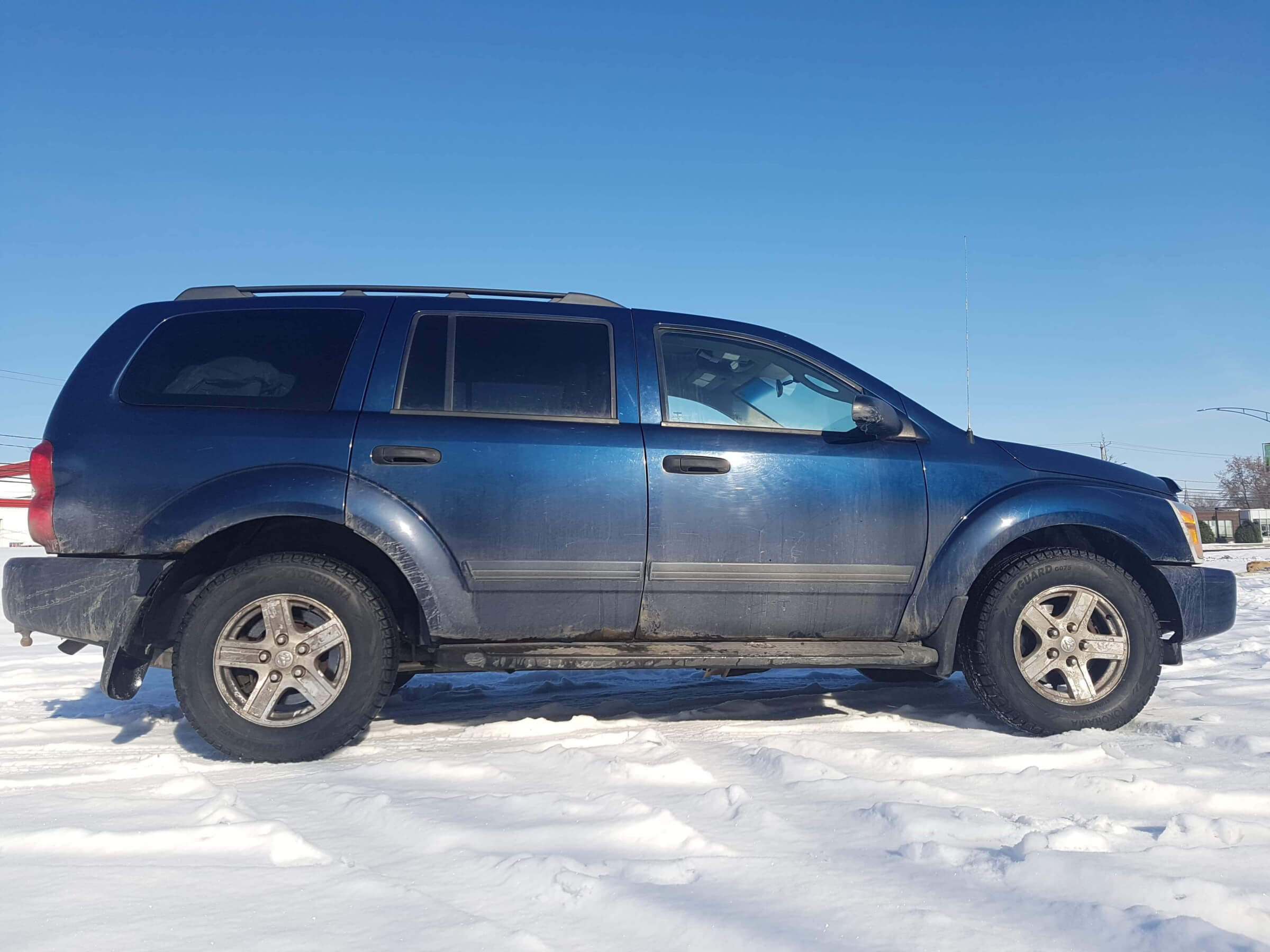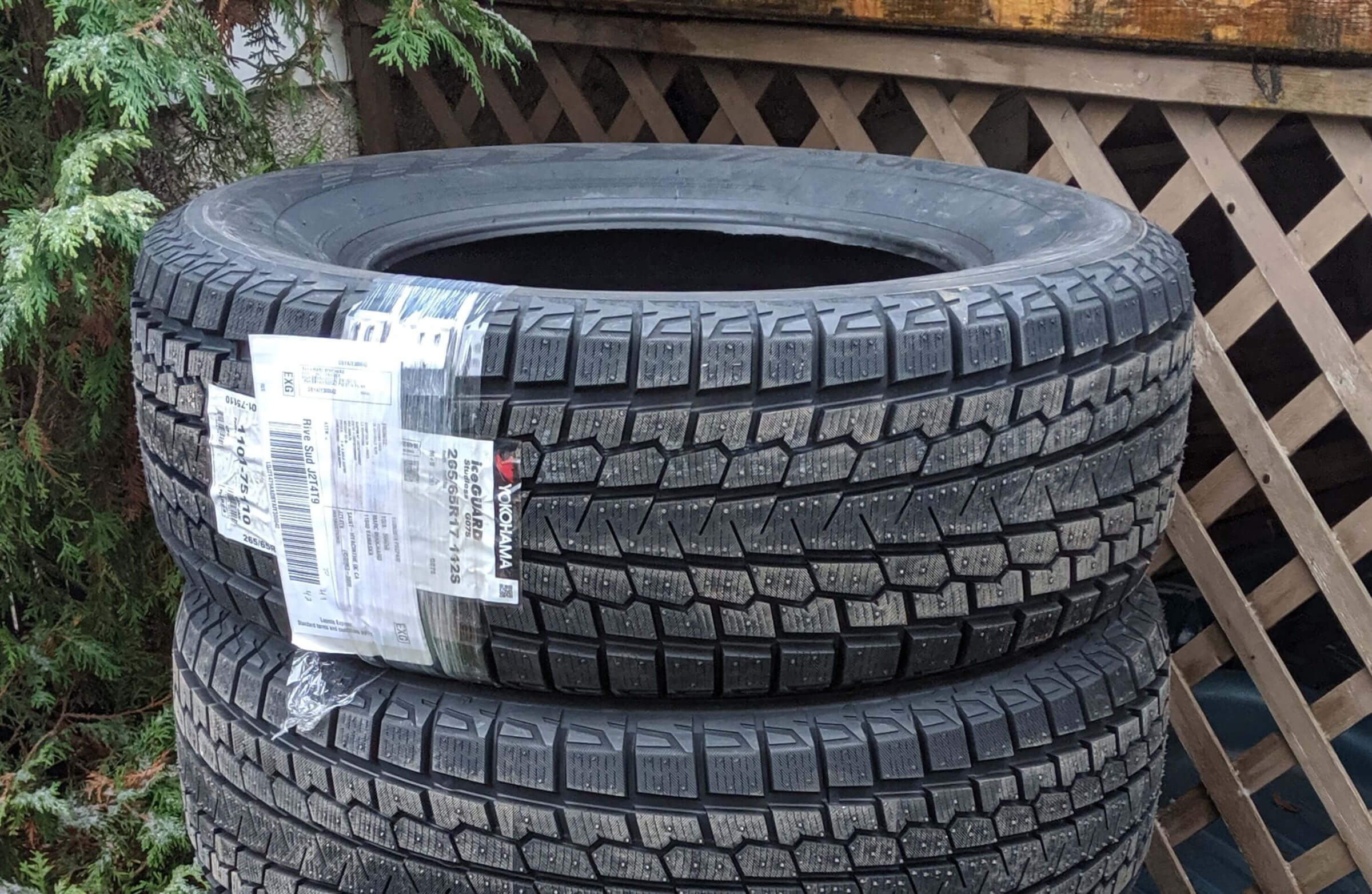We often talk about the noise generated by car traffic and the inconvenience it causes to the people in its direct vicinity. But much less is said about the inconvenience caused to passengers in a vehicle. And between 50 and 120 km/h, tires are the primary source of noise generated by a moving car. So, for you as a driver, but also for the people outside and near your vehicle, reducing the road noise from your tires is the first thing you can do to limit the level of decibels. But how do you do it? Blackcircles Canada, your online tire specialist in Canada, gives you the answer to this question below, starting with a description of the all the different ways tires generate noise!
The source of the noise caused by your tires when you drive is complex and multiple.

Reminder: Tread pattern is necessary to maintain grip in all conditions.
First observation: things would be so simple if it never rained! Under these ideal conditions, tire manufacturers could design and produce tires without tread, and the road surface would be smooth. As a result, tires in motion would make much less noise on the road! But this is impossible. To maintain grip on wet pavement, the road must have a relief, as must the area where the tire is in contact with it. The tire’s relief, which is none other than the tread pattern, has the role of evacuating water so that each of your tires makes dry contact with the road surface. Otherwise, there is no grip!

One source of the noise generated by your tires is the tread pattern…
This is a fact: the sculpture is also a source of noise on board. Indeed, the tread blocks “hit” the ground rhythmically when the wheels turn. If the tire has short, repetitive tread pitch patterns, this will create a “whining” sound. Besides that, the grooves in the tread pattern in contact with the road also trap, compress and then decompress air. The result is a rustle called hissing.
…as is also the rubber itself!
Other noises can come from the rubber itself, starting with the micro-sliding that the rubber undergoes when it comes into contact with the road. This noise, which is easy to hear, is also called hissing. The rubber also skids when under considerable strain (sudden acceleration, tight cornering, heavy braking), and causes the most common noise: tire squeals. In other words, even under ideal real-world conditions (without potholes, which is rare in Canada!), your tires will naturally make noise. What remains to be seen is how much noise is acceptable to you!
Road noise varies in two ways depending on the type of tire.

Noise level varies according to the manufacturer’s intended use of the tire.
All other things being equal, the noise generated by a tire depends on the type of use for which it was designed. Thus, the least noisy tires, with an even road surface, are the all-season tires, followed by the performance tires. Next come tires for SUVs.
The seasons also have an impact on noise levels; winter tires are bound to be louder than all-season tires. But again, there are differences in winter tires: winter tires without studs will be quieter than studded ones. It’s only logical, you might say!
The noise level also depends on the technologies featured in your tires.
To reduce the noise emitted by their tires, several manufacturers have implemented an innovative solution: incorporating anti-noise foam inside the tire itself, to reduce the noise produced by its cavity. The filling of the foam layer occurs after the tire has been moulded, and can either be a continuous strip inside the tire or divided into sections.
For the same size and tread pattern, the noise generated by these tires and perceived inside the vehicle will be lower. By comparison, it will seem like your tires are silent! Conversely, if you choose tires without this technology when your vehicle was designed to use it, you will necessarily feel a higher volume of noise inside. Usually, noise-reducing tires feature a logo on the sidewall to inform buyers that they contain this technology.
How can I reduce tire noise?

By opting for tires with a variable pitch tread pattern.
As seen above, the tread pattern is a determining factor in the noise generated by the contact between the tire and the road. For equivalent efficiency, it is therefore better to choose a tire with a tread design that contains alternating sizes of pattern to reduce road noise!
By selecting a tire according to the type of vehicle, weather conditions and use.
Tire noise also depends on the type of use for which it was designed (see below). You should therefore choose your tires accordingly! For example, if the vehicle you will install them on is only used in the summer (e.g. a convertible), it is best to choose all-season tires, which are the least noisy, rather than performance tires, which offer better grip, but at the cost of more noise.
However, this is nothing compared to winter tires, which will necessarily be less discreet than the two types of tires mentioned above. But even among the winter tire category, not all are equal in terms of unwanted decibels. Indeed, tires without studs will offer much better acoustic comfort than studded tires, which are known to be very noisy. So, if you consider the quietness of your tyres to be a priority, opt for the type of tire that generates the least amount of noise possible for the same efficiency in terms of traction.

For the same efficiency, opt for noise-reducing tires.
If you are particularly sensitive to the noise your tyres generate inside your vehicle, it is best to choose a model that offers the same level of traction performance but with the sound-absorbing foam described above. The noise reduction will be real compared to an equivalent model that does not incorporate this type of foam.
All manufacturers of this type of tire recommend installing four of them to get the best results. Among the tire manufacturers offering this innovation are Bridgestone, Continental, Dunlop, Goodyear, Hankook, Michelin and Pirelli.
Not sure which tire to choose? Browse through our selection of noise reducing tires to see which one best suits your vehicle, and order your tires directly online at blackcircles.ca!







